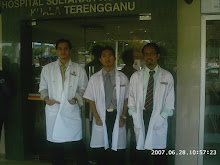The best type of siwak is that which comes from the araak tree. The siwak of the Prophet (pbuh) was from that tree. The siwak is a natural twig fortified with natural minerals that help clean the teeth, other inhibitors that prevent gums from bleeding, cleaning agents that kill microbes and germs and a scent that gives breath a naturally fresh smell. The siwak is an ideal, natural brush that has been endowed with more than any artificial toothpaste could ever have.
Like a toothbrush, the wicks on the siwak clean between the teeth and do not break under any amount of pressure; rather, they are flexible and strong. The small wicks bend to the appropriate shape to get plaque and leftover food out from in between teeth while avoiding any damage to the gums.
The Prophet (pbuh) taught us more than 1,400 years ago to use the siwak to clean our teeth and mouth and give it a nice scent. Anas quoted the Prophet (pbuh) as saying: “Whenever the Angel Gabriel would visit me, he would advise me to use the siwak.”
The leftovers of food found between teeth provide an excellent environment for the festering of millions of bacteria, which can lead to painful and bloody gum disease and cysts. In the worst cases, there can be inflammation of the jawbones.
Bacteria also produce damaging enzymes that eat away at the calcium of the teeth, which causes cavities. In severe cases, the bacteria produce gases that emit nasty stenches from the mouth. Recent studies have found that siwak has natural minerals that kill microbes and germs and remove plaque.
The Prophet (pbuh) used to rub the siwak over his tongue, teeth and gums. Abu Musa Al-Ash’ari said, “I visited the Prophet, peace be upon him, and the siwak was at the edge of his tongue.”
Chemical Breakdown Of A Siwak
Siwak has 19 beneficial ingredients in it. Most important among them are:
1.Antibacterial acidic inhibitors that fight decay and diarrhea. They are natural disinfectants and can be used to stop bleeding. They disinfect the gums and teeth and close any microscopic cuts that may have existed in the gums. On first usage, the siwak will taste harsh, and maybe even burn, because of a mustard-like substance found in it, but this is the ingredient that fights decay in the mouth and kills germs.
2.Minerals such as sodium chloride, potassium, sodium bicarbonate and calcium oxides. These clean the teeth. For instance, the American Dental Association considers sodium bicarbonate to be a preferred ingredient in toothpastes.
3.Natural scented oils that taste and smell nice, give the mouth a nice smell. They make up about 1% of the siwak.
4.Enzymes that prevent the buildup of plaque that causes gum disease. Plaque is also the no. 1 cause of premature loss of teeth.
5.Anti-decay and anti-germ ingredients that act as a penicillin of sorts, decreasing the amount of bacteria in the mouth, which means cleaner teeth and cleaner air when breathing through the mouth.


